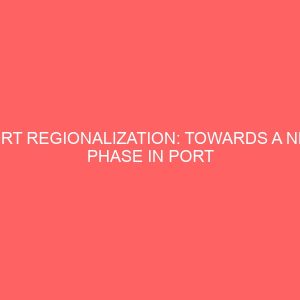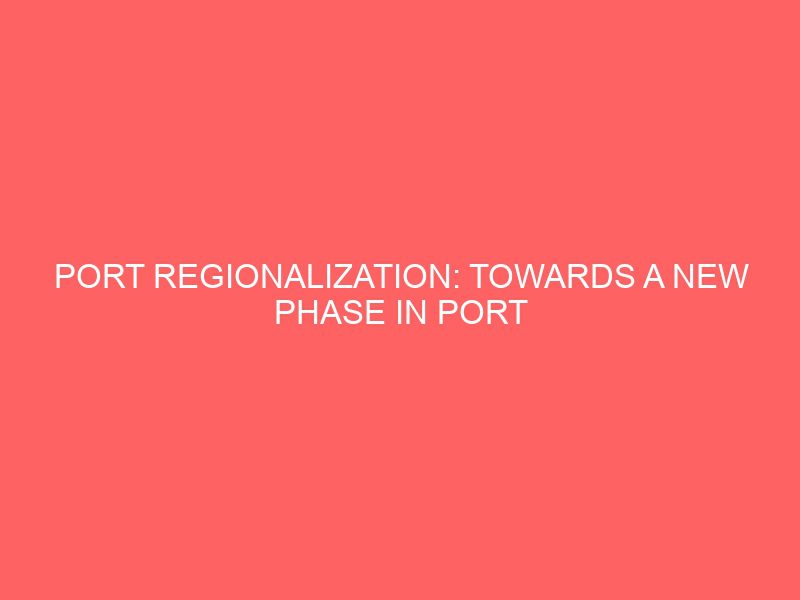Description
Abstract
Logistics integration and network orientation in the port and maritime industry have redefined the functional role of ports in value chains and have generated new patterns of freight distribution and new approaches to port hierarchy. Existing models on the spatial and functional evolution of ports and port systems only partially fit into the new freight distribution paradigm. This paper aims to add to existing literature by introducing a port regionalization phase in port and port system development. It is demonstrated that the regionalization phase and associated hinterland concepts demand new approaches to port governance and a functional focus that goes beyond the traditional port perimeter.
TABLE OF CONTENT
Chapter One Introduction
1.1 Background of the study
1.2 Statement of the problem
1.3 Purpose of the study
1.4 Significance of study
1.5 Research questions
1.6 Scope of study
1.7 Limitation of study
1.8 Definition of terms
Chapter Two
2.0 Literature Review
Chapter Three
3.0 Methodology
Chapter Four
4.0 Data Analysis
Chapter Five
5.0 Summary, Conclusion and Recommendations







